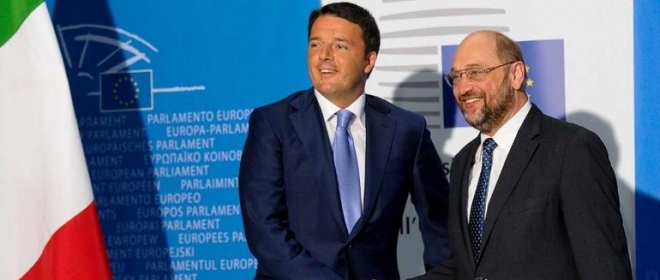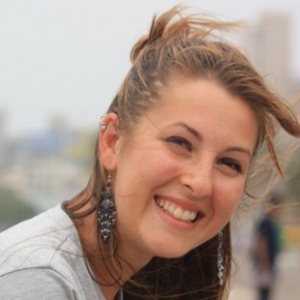

“To see the world, things dangerous to come to, to see behind walls, to draw closer, to find each other and to feel. That is the purpose of life”.
Per chi, come me e come Walter Mitty, si sentiva o, tuttora, si sente imprigionato in un presente e in una vita senza più obiettivi e da un giorno all’altro ha la possibilità di cambiare, di prendere tutto il necessario e di partire alla scoperta del mondo, per voi saranno i miei consigli di viaggi (Trips’ Tips).
Voi siete la cosiddetta generazione dei “cervelli in fuga”, voi potete essere “cervelli” o non, giovani o non, ma, sicuramente, siete arrivati ad avere consapevolezza della vostra vita e di tutto ciò che vi è possibile fare.
È interessante sapere perché non è più così facile immaginare un futuro nel proprio paese natio. Cercherò, quindi, di sgrovigliare questa matassa descrivendovi come differisce la vita in un’altra nazione, in questo caso il Belgio, più in particolare Bruxelles.
Senza fare alcuna demagogia analizzerò le differenze positive e negative tra queste due nazioni e non solo.
In queste pagine parlerò del mio viaggio, della mia partenza dall’Italia.
L’obiettivo è proprio aiutarvi a farlo, non solo dandovi una mano, tramite link, nel trovare casa, lavoro e amici; ma anche ampliando la vostra cultura del bello o del brutto o del mediocre descrivendo, criticando ed entusiasmandovi riguardo a film, canzoni e tutte quelle forme d’arte di cui è possibile parlare e, soprattutto, scrivere.
Con manifestazioni e spettacoli di ogni genere, vi renderò partecipi e vi incuriosirò a tal punto da fare una capatina in quel di Bruxelles.
Questo blog potrà essere per voi una guida sul prossimo film da vedere oppure sulla prossima città da esplorare.

Chiara Girardi
Chiara Girardi, classe 1989, è nata a San Benedetto del Tronto, ma vive da sempre ad Ascoli. Dopo aver conseguito la maturità classica si iscrive a Lingue e Letterature Straniere, lingua Inglese e Russo, all’Università “Carlo Bo” di Urbino. La facoltà le offre la possibilità di spendere il suo terzo anno in Erasmus a Nottingham, con un soggiorno di 10 mesi per frequentare la Nottingham Trent University. Laureatasi a Urbino sceglie di continuare gli studi all’estero e cerca, con successo, l'iscrizione a un Master a numero chiuso di Giornalismo Internazionale alla Dublin City University, in Irlanda. Così, Chiara sceglie di andare a vivere a Dublino, dove rimane anche dopo la laurea per continuare gli studi e allo stesso tempo guadagnarsi da vivere lavorando e scrivendo articoli su giornali italiani della città e magazine online. Fa un corso serale di Russo al Trinity College Dublin, dove la vita per un anno e mezzo procede fra studio e lavoro, sino a quando decide di trasferirsi ulteriormente in Inghilterra, a Brighton. Nel Regno Unito le cose non vanno granché bene, così, dopo appena 3 mesi, Chiara decide di tornare in Italia. Un “viaggio della speranza al contrario” che porta Chiara a fare un lavoro che non la soddisfa e non trovando nient’altro, dopo vari tentativi di ricerca di un lavoro nel mondo, torna in Europa per un tirocinio a Bruxelles.
TAGS
Ago 5
di Chiara Girardi

"If Europe was to take a selfie today, it would be a tired, resigned image," said Matteo Renzi to the plenary the 2nd of July, emphasising the crisis issue. Renzi's speech in front of all the 751 MEPs dealt with a broad range of issues, not only concerning the economic crisis that is gripping Europe, but also about the Italian contribution to Europe through the ages by art, culture, food and wisdom.
The main priorities of the Italian presidency are growth and employment, a space for freedom and security, full exercise of citizenship rights and a stronger role of Europe in the world. About the Stability and Growth pact, Matteo Renzi said: "We now have stability. We are asking for growth to be a fundamental element of European policy," and José Manuel Barroso, president of the European Commission, replied: "Now we have the conditions to make Europe able to generate the jobs that our young people need."
Italy wants to underline the importance of being European citizens, that today means living without obstacles and procedures, to promote a more active role of the European Union in areas where European initiative adds value, for example right of free movement, protection of fundamentals rights, migration and asylum policies. This last issue is really important for the Italian government and citizen as well, since the number of immigrants arrived from the beginning of 2014 goes over 67 thousand people of which 6.500 are under 18 unaccompanied. On this issue, the Italian Presidency wants to develop a genuine solidarity at a European level and to promote an effective European migration policy.
All the 28 Member States agree that the main challenges are the recovery from the crisis, employment, fundamental rights and support for European citizens. Some of the 73 Italian MEPs commented the priorities presented by Matteo Renzi during the plenary agreeing or disagreeing with his point of view of Europe and with his way to lead Italy.
Elisabetta Gardini, head of the Forza Italia delegation in the EPP, said that "the Italian presidency must commit to improving the real economy, helping European small and medium-sized companies and responding to European citizens, who are asking for a real visible change of pace on employment – starting with young people." Eleonora Forenze, GUE, instead, commenting Renzi's speech, said: "Unfortunately, we expect that the Italian presidency will only continue with austerity policies, as confirmed by the results of the last Council. The same policies of Matteo Renzi, as evidenced by the Jobs Act, will make work instability in Italy even worse." On the same wavelength was Ignazio Corrao, EFDD, underling that he has no high expectations for this semester and thinking that "This presidency risks being one of a lot of promises and zero facts, as it's very close to the system that makes the people of Europe poor and angry," and also " It will serve Europe's financial elites and never citizens, and be far from the real economy and close to the big powers. It will cause only further problems to employment, proper salaries and more in general the dignity of human beings."
Even inside the European Parliament there are controversies about the role of Italy during the Council Presidency. Italy has held the presidency 11 times in the history of the European Union, which started on 25 March 1957 with the Treaties of Rome; we hope this time will be different as was written in the recent European Elections' motto. During the next six months, Italy has to prepare, coordinate and chairing the work of the Council. The Member state who owns the Council presidency shall act as an honest broker to promote legislative decisions and policies initiatives, and in order to negotiate with the other member states, that's a tough task especially for Italy, due its "internal political problems".
Each presidency has two main tasks to take care of: the first one is to tend to the agenda of the Council and to chair a number of meetings (two meetings of the European Council, the meetings of the Council of Ministers, the meetings of its preparatory bodies, several informal ministerial meetings, summits and other meetings among EU institutions and third countries); the second task is to represent the Council in relations with the other EU institutions, in particular with the European Commission and the European Parliament, trying to reach agreement on legislative files through trialogues, informal negotiation meetings and Conciliation Committee meetings.
In December 2014, when the six months term of the Italian Presidency will expires, the Head of State or Government (maybe Matteo Renzi even if speaking about Italy we cannot assure that) will present the work carried out and submit to the European Parliament a report on the last meeting of the European Council.
Since the European Elections took place last May and with a view to the renewal of the European Commission at the end of 2014, three Member states (Italy, Latvia and Luxembourg), are determined to push the abilities of the new legislature giving concrete and genuine answers to the European citizens' expectations. These three Member states created the Trio Programme, since the rotation of the presidency takes place every six months according to a pre-set order and the next member state will be Latvia from January till June 2015 and then Luxembourg from July till December 2015. From the 1st of July 2014, the Trio Presidency will have a unique goal to achieve: fully overcoming the economic crisis and returning to a job rich growth, and even seize the opportunities of the digital economy. The main priorities for the three presidencies will be safeguard fundamental rights all over Europe and consolidate European Union's role as global player.
© Riproduzione riservata
1499 visualizzazioni